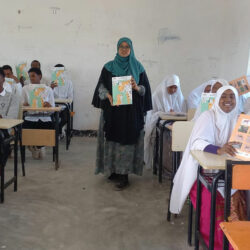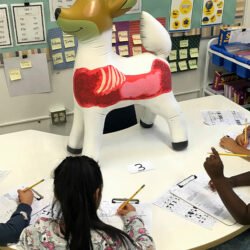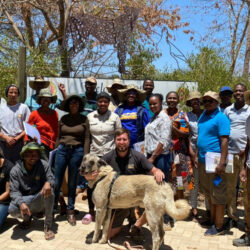Farmer’s Tour of CCF
-
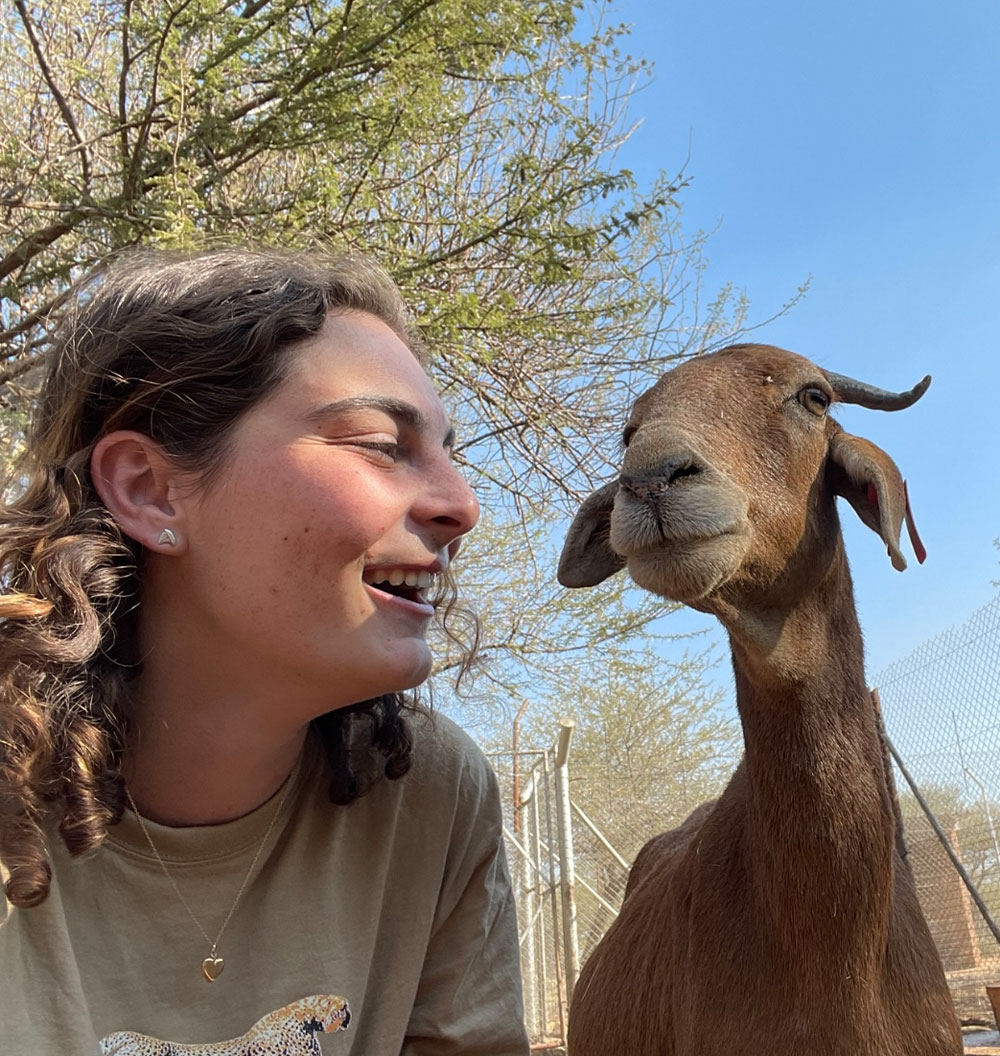
- by Sage Demopoulos June 26, 2023
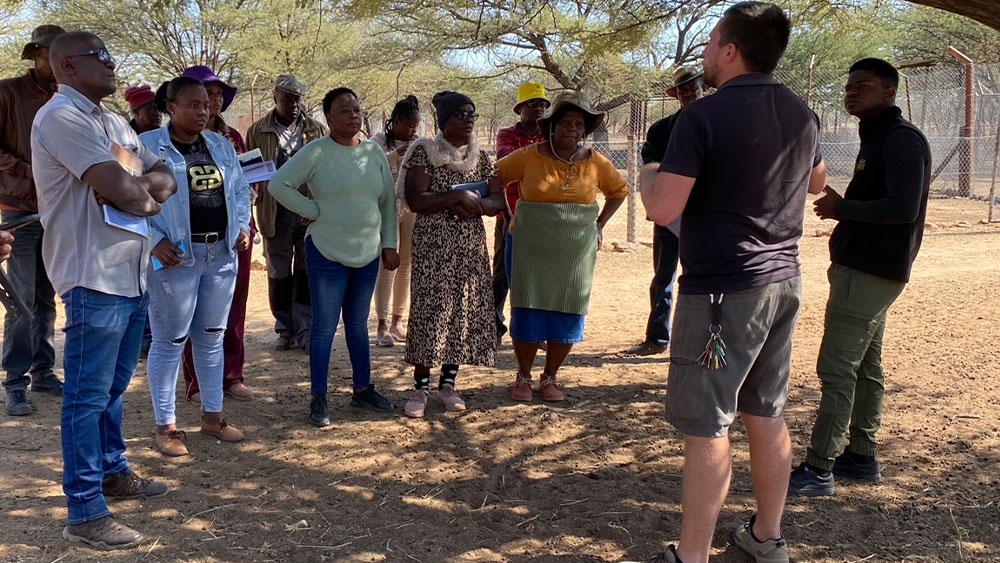
My name is Sage Demopoulos, and I am a rising third year veterinary student from Cornell’s College of Veterinary Medicine in Ithaca, New York. My lifelong ambition is to become a veterinarian and wildlife conservationist. Not only do I want to care for animals (both wild and domestic) to improve their lives, but I also hope to study One Health, the relationship among animals, the environment, and people to better the lives of all species.
The Cheetah Conservation Fund (CCF) plays a leading role in the global efforts to not only save cheetahs from extinction, but also to support the human communities that share the landscape. Being a veterinary intern at CCF has been an unparalleled opportunity to experience these holistic conservation efforts first-hand. On Friday I had the unique opportunity to participate in the inaugural Farmer’s Tour of CCF, which was paradigmatic of the work done at CCF and the real impact their expertise brings to the local community.
The tour lasted 2 days and covered a myriad of topics including veterinary care, farm management, human-wildlife
conflict mitigation with guarding dogs, and how to make cheese from goat milk. I was awed by the preparedness of the farmers, who came ready with cameras and notepads, indicative of their passion and desire to learn. Their eager reactions to each new piece of information made it clear that everything we taught would be having real, practical impact in both the immediate and distant future.
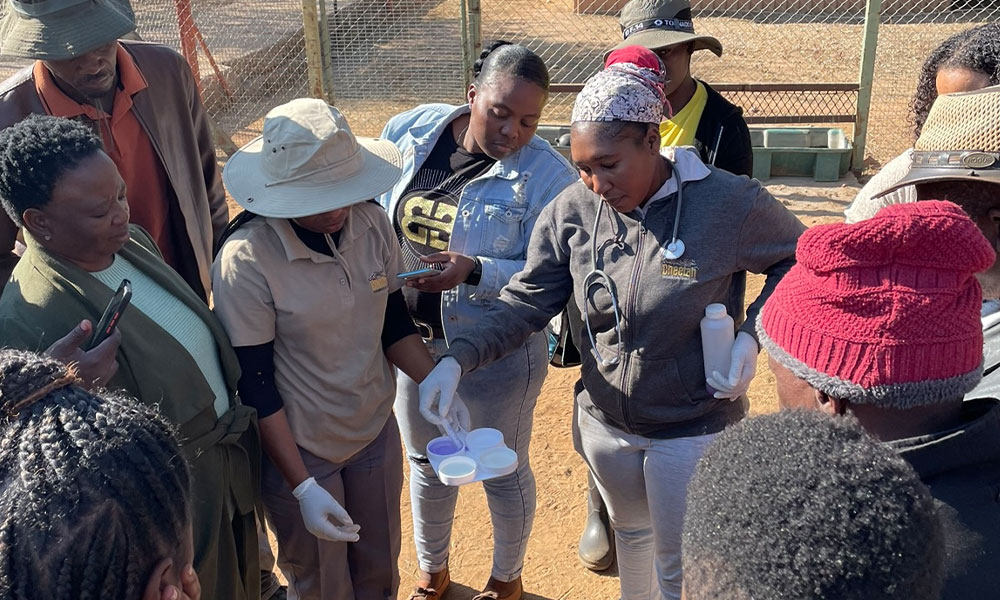
The farm tour was a unique experience as I found myself constantly shifting between teaching alongside the staff and learning alongside the farmers. Never before have I seen veterinary care demonstrated in such an attainable way, and even more remarkable was the inquisitive nature of the farmers. The tour went overtime by hours because everyone was actively invested in the material, asking questions, taking detailed notes, and even asking how to spell the names of each drug mentioned. It was also inspiring to see the passion of the staff, all of whom happily missed lunch to provide farmers with their best answers to each question. Livestock Guarding Dogs really help to reduce livestock losses to predators, because just the smell of dogs will often keep cheetahs far away. Some of the dogs have battle stories of taking on fights with leopards and cheetahs and live to be herding heroes, risking their lives to protect their herd. After the tour, every farmer wanted to apply to get a guarding dog, and their excitement and awe was contagious.
I am truly inspired by the creative ways CCF scientists have gone about conservation work, and their model farm is proof of their success. Predator-friendly farms ARE possible, and not only do these management strategies help to save the cheetah, but they also help farmers keep their herds healthy and turn a profit. I have never been more convinced of the possibility of a world in which the environment, people, and animals all work together in a sustainable way to better the lives of all, than I was on that day, and seeing the farmers have similar epiphanies only convinced me further that with the dissemination of knowledge there really is hope.
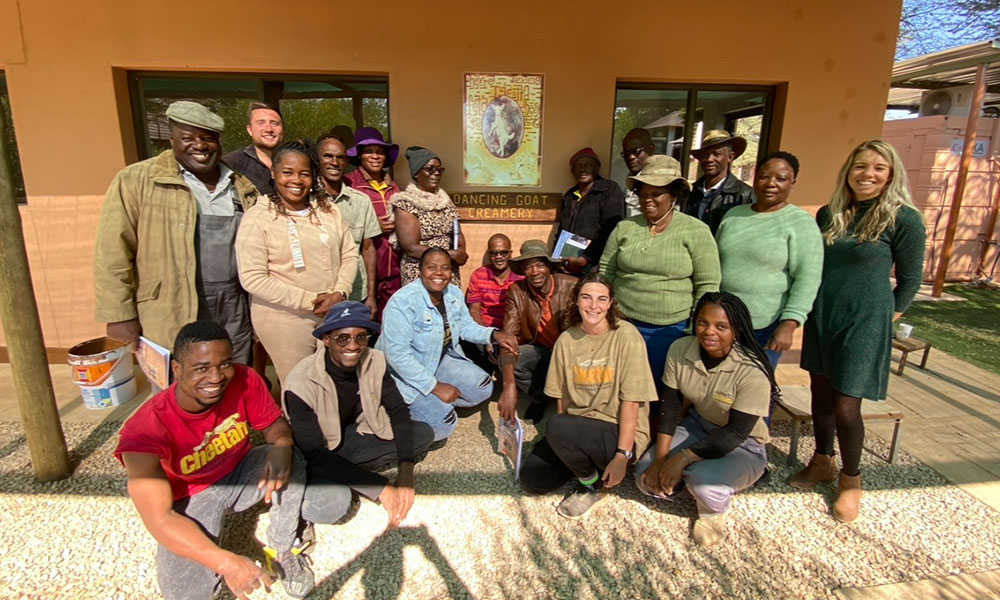
Related Reading

